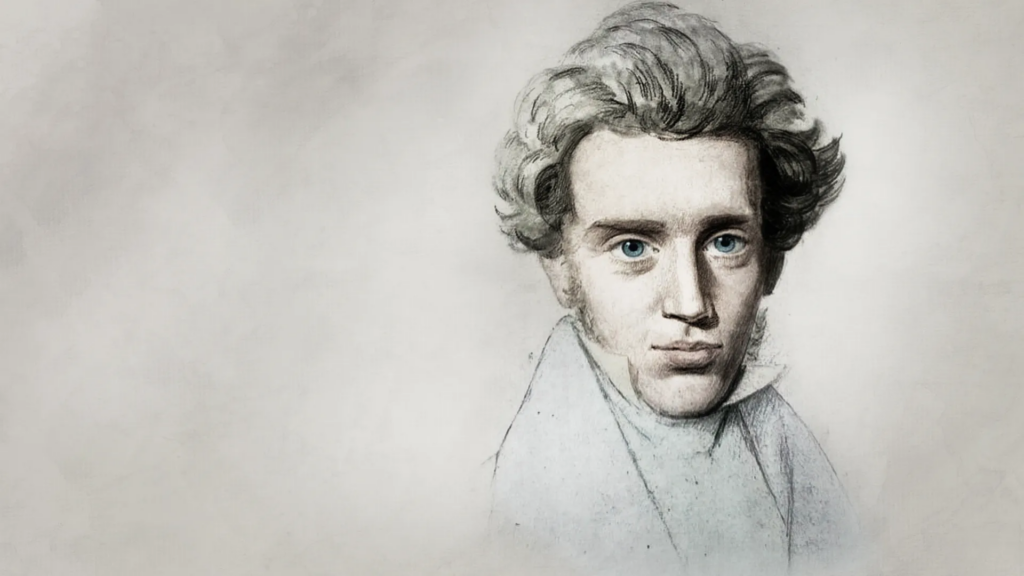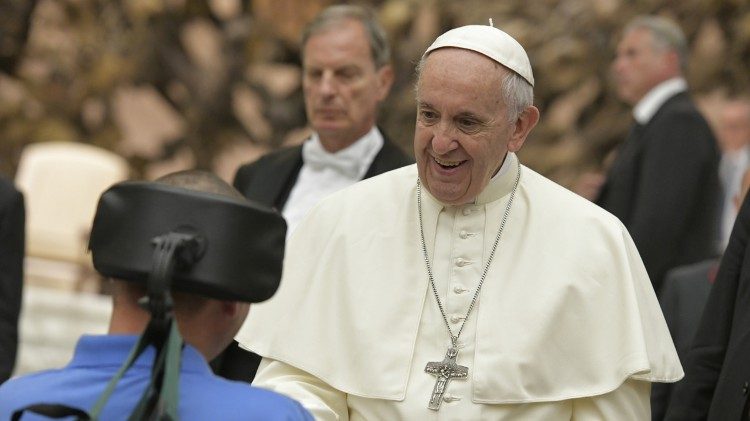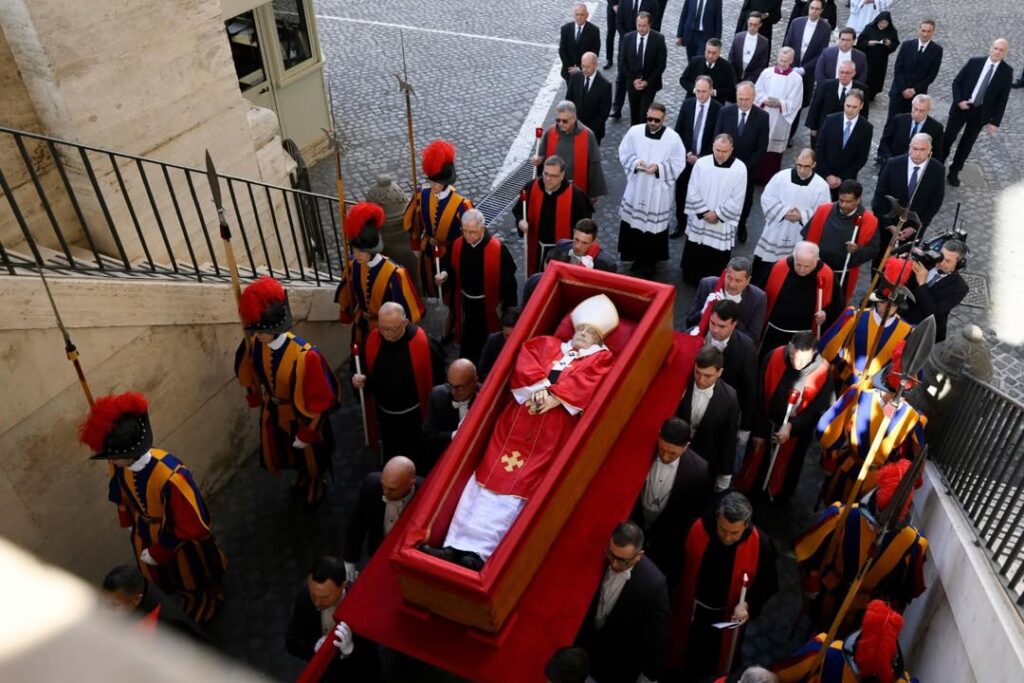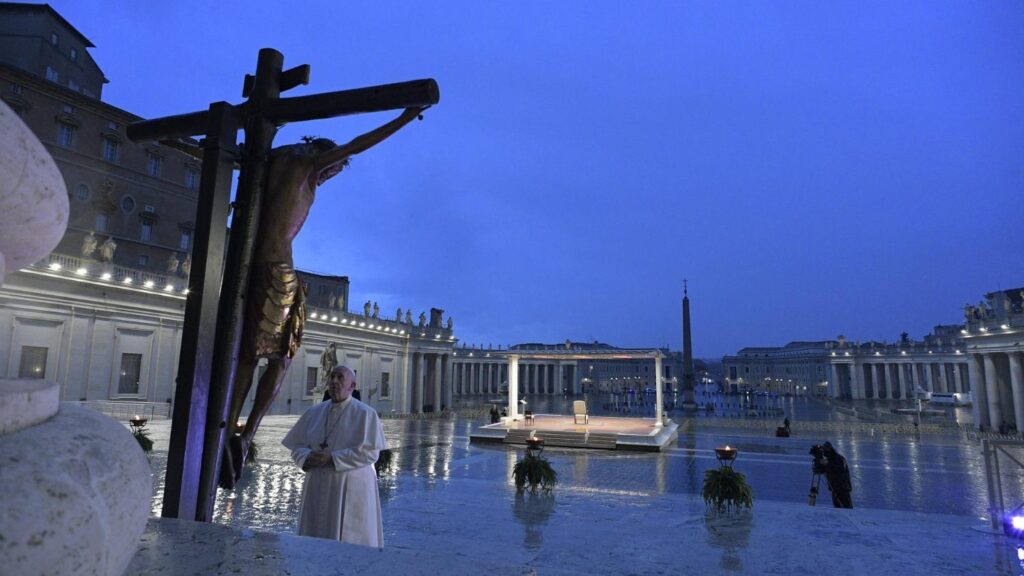His Hope Does Not Die!
My Tribute to Pope Francis

For the Catholic Church to be, infallibly and unfailingly, the community of believers and disciples of Jesus Christ, it must be aligned, in tune, and in harmony with the Gospel of the carpenter’s son of Nazareth, with his Good News—that is, with his words, with his criteria. Only in this way can we believers, in a community of faith, be “light and salt” of the earth.
Pope Francis died, and this, precisely, was his main endeavor, this was his main legacy and memory for posterity in the Church and in the history of humanity: having tried—in season and out of season—to bring the lives of Catholics and all of humanity closer to the principles and values of the Gospel, in the effort to build a kinder, more just, more humane, more supportive, and more fraternal world.
And he carried out this commitment throughout his life as a man and as a Christian, but especially during the exercise of his Petrine ministry, with the profound certainty that springs from the life of Jesus of Nazareth: that all human beings have the dignity of being children of the same God, good Father and Creator, and that, therefore, we are all brothers and sisters, with a shared present—in good and bad—and a common destiny.
This evangelical conviction shaped the entire life of this Argentine from Buenos Aires, a descendant of Italian immigrants, the man, the chemist, the Jesuit priest, and the Pope, whose disciple I had the privilege of being in Buenos Aires.
Still shocked by the news and with deep sorrow, I write these as a loving tribute to someone whom—thanks to life and on many occasions—I had the honor of meeting physically and enjoying his friendship and teachings. In recent years, for example, in two private audiences, the Holy Father received more than 1,100 doctors from the SOMOS COMMUNITY CARE organization, for which I work, and fervently encouraged us to launch the Thank You, Doctor! campaign, whose mission is to humanize healthcare and all that it entails, especially for the most disadvantaged. These meetings are now indelible in the history of our institution. And, at the same time, this is a tribute of gratitude that, together with the entire Church and humanity, we deservedly owe and render to the beloved Pope Francis.
I believe I echo many of those who accompany us, simultaneously feeling sadness and joy. Sadness at the passing of such a distinguished human being, exemplary Christian, and good shepherd. Joy, because his testimony, his example of life, and a path of humanity and holiness remain open to us, so that we may travel it in search of better times for Catholicism and for the entire world.
Francis’s Petrine ministry was always accompanied by a desire to label him, to label him, as right-wing or left-wing, as conservative or reformer, etc. Javier Cercas, in his recently published book, “God’s Fool at the End of the World,” a product of the writer’s accompaniment of Pope Francis on his trip to Mongolia, resolves this desire to label Francis by saying that—as with every human being—in Francis, there were many Bergoglios in one Bergoglio. But here I would like to say that the young and the old Jorge Mario, the chemist and Pope Bergoglio, the student and the priest Bergoglio, the Buenos Aires and Roman Bergoglio, all possible Bergoglios, had in common: their sense of humility and simplicity, their unshakeable faith, their saving sense of humor that springs from the joy of knowing they are loved by God, their universal love manifested as openness and generous dedication to all, but especially to those “discarded” by society, their fidelity to the Gospel and, therefore, their authenticity as a disciple of Christ, their freedom and courage to defend the truth, their ecumenical spirit, and their Franciscan care for our “common home.”
All of which, in a world urgently in need of authority, urgently in need of leaders and men and women with coherence between what they say and what they do, between what they preach and what they practice, between what they believe and what they live, and in a Church contaminated by these lacks of authenticity and truth, Pope Francis, with all his gestures and words, turned out to break the mold and be a great reformer, a renewer, whose shepherding and legacy leaves us all the testimony of his hope for a better Church and a better world.
But the one who asked young people to “make a mess” created trouble within the Church. Because of all these accents, these emphases on Francis’s personality, religious experience, and ministry, earned him enemies among those who, accommodated to tradition, privilege, and power, saw Francis as a threat. Because Francis invited them to build a poor Church, of and for the poor, to go out to the peripheries (not just geographical ones), to make the Church a great tent to heal wounds, to smell like sheep, etc.
Therefore, like Jesus himself at the table of the Last Supper, Francis experienced suffering, the product of the incomprehension of his people, coupled with the suffering of having to weather the storm that the sexual abuse scandal involving clergy has represented for the Church in recent decades. And he who faithfully follows the Gospel and the Truth, which is Jesus Christ himself, encounters—like him—persecute and the cross, a sign of authentic discipleship.
Francis has passed away. We have lost the physical presence of a great Christian man, an authentic leader and pastor. We are left with his invitation to build a Church and a world where hope, through mercy, is possible. Likewise, we are left with the memory of his madness, the same as Jesus of Nazareth, of whom “they said he was mad,” for swimming against the current of the world, for living and inviting us to follow the logic of God, which is not that of the world.
After the funeral services, the conclave of cardinals will take place for the election of Francis’s successor to the See of Peter. Let us pray that the Holy Spirit will guide the electors and that, in the outcome, the legacy of the good Pope Francis, embodied in his countless pastoral trips, meetings, audiences (public and private), books, homilies, exhortations, documents, encyclicals, etc., will be preserved.
Thank you, Francis!
Rest in the peace that comes from the eternal presence in the love of the Father!
Mario J. Paredes is the secretary of the Dr. Ramón Tallaj Foundation. The Dr. Ramón Tallaj Foundation is a non-profit institution that provides scholarships to low-income students with high academic achievement who wish to pursue a career in the health field.
Related

The Religious Writer with a Fighting Heart
Francisco Bobadilla
24 April, 2025
4 min

Francis. The Human and Religious Imprint of a Papacy
Isabel Orellana
24 April, 2025
5 min

A Pope’s Last Journey: Francis’ Body Transferred to St. Peter’s
Exaudi Staff
24 April, 2025
3 min

Cardinal Felipe Arizmendi: With the Risen Christ, There Is Hope
Felipe Arizmendi
24 April, 2025
6 min
 (EN)
(EN)
 (ES)
(ES)
 (IT)
(IT)

